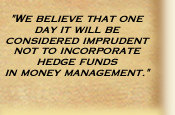February 11, 2009 – New York, NY – Hennessee Group LLC, an adviser to hedge fund investors, believes the current global financial crisis could be entering a new and more treacherous phase, one that could push international countries to the brink of failure and further hinder the global economic recovery. Charles Gradante, Co-Founder of the Hennessee Group, noted “Iceland had one of the highest standards of living in the world just a few months ago.” Gradante added, “Now after experiencing the fastest economic collapse in history, Iceland is suffering from soaring unemployment, as well as double digit interest rates and inflation.” Hennessee Group Research is concerned there are other countries that share some of the same characteristics as Iceland, particularly with regards to its debt to economic output, and could be vulnerable to the same devastating effects of the financial crisis. The Hennessee Group believes it is imperative that world leaders pursue the appropriate policies to stimulate trade and promote worldwide growth otherwise we could enter a global economic crisis similar to that of the 1930’s.
ICELAND’S COLLAPSE
After privatizing the banking sector in 2000, Iceland’s banks went from being largely domestic lenders to major international financial intermediaries with foreign assets worth nearly ten times the country's GDP. As the banks dramatically expanded overseas and foreign money poured into the country, the Icelandic economy experienced exceptional growth and prosperity. Iceland was considered in 2007 to be one of the richest per capita countries in the world. However, as the global financial crisis picked up steam, it exposed the weakness and dependence of Iceland’s economy on the banking sector, as well as it’s vulnerability to a staggering economic collapse.
Hennessee Group Research believes a primary contributor to the rise and fall of Iceland’s economy was the vast size the country’s financial sector grew relative to its GDP and fiscal capacity. Charles Gradante noted, “Iceland’s three main banks (Kaupthing, Landsbanki and Glitnir) built total liabilities of approximately ten times the size of their GDP, up from about two times in 2003.” Gradante added, “In addition, approximately 80% of the liabilities were in foreign currencies leaving them at risk of a currency collapse.” As the markets seized up, Iceland’s banks started to collapse under the heap of foreign debt they took on over the years. As concerns mounted about the stability of Iceland’s banks, foreign investors fled the country, prompting the value of its currency to drop nearly -50% in just one week. The collapse of the currency left banks and citizens with loans originated in foreign currencies in a very tenuous situation; the weakening currency led to their debt obligations nearly doubling. As the nation's economic crisis deepened, unemployment rose from 1% to 10%, inflation soared to nearly 18% and the stock market lost approximately -90% of its value. The economic crisis resulted in significant unrest and led Iceland to be the first western country to borrow from the International Monetary Fund since 1976. The IMF agreed to lend Iceland €1.6bn to restore confidence in its economy.
WHO’S NEXT?
Hennessee Group Research believes that while Iceland’s circumstances were unique in many ways, there are countries suffering from similar risks which could leave them just as vulnerable in the current crisis. One particular statistic of concern to the Hennessee Group is the large amounts of external debt certain countries are currently carrying relative to the size of their economy (GDP) and will continue to build as they battle the economic slowdown.
Country |
External Debt |
GDP |
Ratio |
Canada |
$0.8B |
$1.3T |
62% |
China |
$0.4T |
$7.8T |
5% |
France |
$4.4T |
$2.1T |
210% |
Germany |
$4.5T |
$2.9T |
155% |
Iceland |
$0.18T |
$0.02T |
900% |
Ireland |
$1.8T |
$0.2T |
900% |
Italy |
$1.1T |
$1.8T |
61% |
Japan |
$1.5T |
$4.5T |
33% |
Netherlands |
$2.3T |
$0.7T |
328% |
Switzerland |
$1.3T |
$0.3B |
433% |
United Kingdom |
$10.5T |
$2.3T |
456% |
United States |
$12.3T |
$14.6T |
84% |
| Source: CIA - The World Factbook - This entry gives the total public and private debt owed to nonresidents repayable in foreign currency, goods, or services. These figures are calculated on an exchange rate basis, i.e., not in purchasing power parity (PPP) terms. |
While there has been a lot of discussion regarding the mounting debt of the U.S. due to recently implemented bailout programs and stimulus packages, Hennessee Group Research believes the U.S. appears relatively stable in comparison to their international counterparts. Currently, the U.S. debt to GDP ratio is approximately 100% with the bulk of its external debt mostly in dollars. Rather, the Hennessee Group has increasing concern with numerous countries in the euro zone that appear to be building uncomfortably high debt levels relative to their economic output. The Netherlands currently has a ratio of approximately 328%, while Ireland has built a staggering debt to GDP ratio of 900%. However, the two countries that appear most susceptible to an economic collapse are the U.K. and Switzerland. The UK’s debt to GDP ratio is currently 456% while Switzerland’s is 433%. Gradante stated, “While these countries are much bigger than Iceland, they do share certain characteristics that make them vulnerable to further economic hardship. Both countries have developed into major financial intermediaries over time, and have grown sizeable external debts that are denominated in foreign currencies.” The Hennessee Group believes if either country were to experience a crisis of confidence whereby investors flee the country for safer havens, their currencies could experience a crash similar to that of Iceland’s and leaving them potentially insolvent.
CONCLUSION
The Hennessee Group is concerned that if more countries begin to teeter, as we saw with Iceland, we could see more protectionist policies whereby countries favor their own industries at the expense of foreigners. Charles Gradante, stated “The “me first” policies being drawn up and discussed are a concern, as more countries adopt such policies it will inevitably choke off trade and drastically hamper global growth, we could ultimately fall into another Great Depression era.” Gradante added, “The top threat facing the U.S.A. is not nuclear proliferation, not terrorism but the global recession/depression”. The global economy has lead to anger, despair and protest around the world. “Civil unrest among friends and foes can have a destabilizing affect on the balance of power and ultimately international trade, protectionism is our biggest fear now at the Hennessee Group,” concluded Gradante.
About the Hennessee Group LLC
Hennessee Group LLC is a Registered Investment Adviser that consults direct investors in hedge funds on asset allocation, manager selection, and ongoing monitoring of hedge fund managers. Hennessee Group LLC is not a tracker of hedge funds. The Hennessee Hedge Fund Indices® are for the sole purpose of benchmarking individual hedge fund manager performance. The Hennessee Group does not sell a hedge fund-of-funds product nor does it market individual hedge fund managers. For additional Hennessee Group Press Releases, please visit the Hennessee Group’s website. The Hennessee Group also publishes the Hennessee Hedge Fund Review monthly, which provides a comprehensive hedge fund performance review, statistics, and market analysis; all of which is value added to hedge fund managers and investors alike.
Description of Hennessee Hedge Fund Indices®
The Hennessee Hedge Fund Indices® are calculated from performance data reported to the Hennessee Group by a diversified group of over 1,000 hedge funds. The Hennessee Hedge Fund Index is an equally weighted average of the funds in the Hennessee Hedge Fund Indices®. The funds in the Hennessee Hedge Fund Index are derived from the Hennessee Group’s database of over 3,500 hedge funds and are net of fees and unaudited. Past performance is no guarantee of future returns. ALL RIGHTS RESERVED. This material is for general information only and is not an offer or solicitation to buy or sell any security including any interest in a hedge fund.












